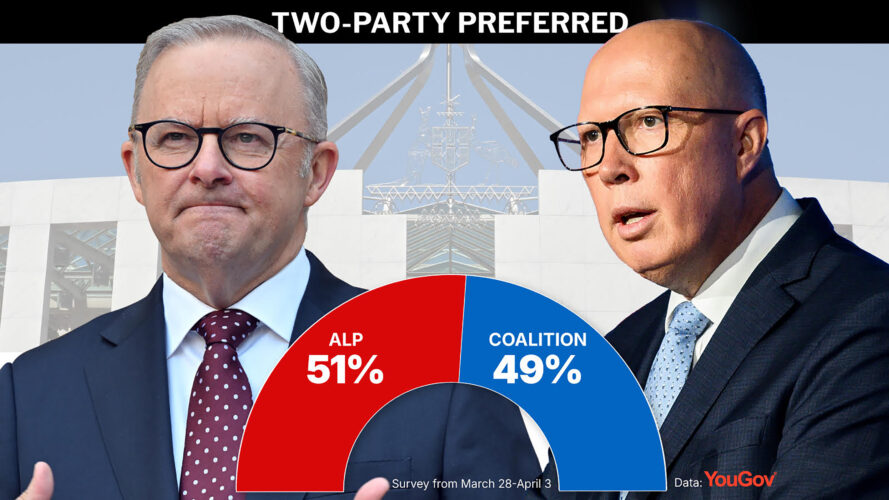Acting Director, Centre for Future Work
Last week, in a surprise move, Peter Dutton announced a coalition government would not repeal Labor’s “Same Job Same Pay” laws that have raised the wages of thousands of labour hire workers.
The Opposition leader also said “the big difference on industrial relations policy at the next election between us and the Labor Party will be that we’re going to deregister the CFMEU”.
Is Peter Dutton’s statement a good representation of the differences in the major parties’ positions on industrial relations? For a start, let’s look at what the major parties have said (or not) on minimum wage rises.
The Annual Wage Review
The Prime Minister has said a Labor government would tell the Fair Work Commission to raise the minimum wage above inflation to increase the real wages of low-paid workers.
Peter Dutton has said he supports an increase in the minimum wage but has not said how much of a rise or whether it should be above inflation. This leaves him with an awful lot of wriggle room.
Earlier this year, Shadow Minister for Employment and Workplace Relations, Michaelia Cash, was asked if she could “guarantee that workers won’t get a pay cut or fall under the Coalition”. Senator Cash failed to answer the question and, instead, responded “Let’s be very clear, it is under former Coalition government, the real wages moved forward”.
If the Coalition heeded the advice of business lobby groups ACCI and ABI, they would be wanting the Fair Work Commission to limit minimum and award wage increases to 2.5%. This would very likely mean a cut in real wages for the lowest-paid workers, with Treasury forecasting CPI at 3% to June 2025.
The ACTU is seeking a 4.5% increase to the minimum wage, arguing this is what is needed for the 2.6 million workers on minimum wages to get ahead of inflation.
Analysis by the Centre for Future Work shows that an increase in minimum and award wages of between 5.8% and 9.2% is needed to restore the real buying power of low-paid workers’ wages to pre-pandemic trends.
The Fair Work Commission’s annual wage review deliberations will continue through May. Peter Dutton and Michaelia Cash should tell us now exactly how much a Coalition government would like to see low-paid workers’ wages rise.
For these workers, a small difference in percentage points matters a lot because it means the difference between getting ahead or going backwards.
And if the Opposition leader and Shadow Minister will not support a real increase in minimum and award wages how confident can we be that a Coalition government would support the ongoing work of the Fair Work Commission to tackle gendered undervaluation of low-paid care workers in publicly-funded sectors? Would a Coalition government continue to fund multi-employer bargaining pay increases for early childhood educators and care workers ?


Loading form…